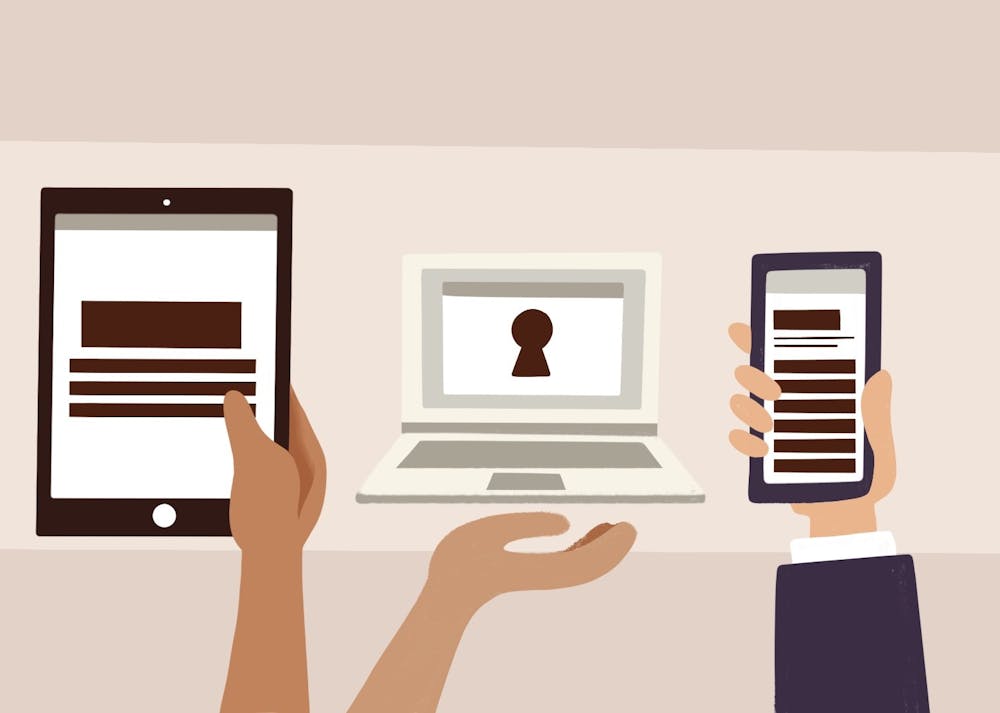On Jan. 8, Twitter permanently banned one of its most-followed accounts — former President Donald Trump's.
A wave of Big Tech companies quickly followed, including Facebook and Instagram, which either banned Trump's account or censored his content.
This crackdown follows the Jan. 6 Capitol riots, which spurred social media platforms to block posts that condoned the event or incited further violence.
Trump's social media deplatforming rekindled a long-standing debate on whether censorship infringes upon freedom of speech, and what role social media plays in protecting speech.
Morgan Loew, a media law professor at ASU, said the First Amendment shouldn't be expanded to apply to private companies, social media included.
"It's easy to say we don't want Twitter to censor the content that's on Twitter," Loew said.
He likened Trump's situation to an unruly customer at a restaurant.
"If a customer comes in and starts criticizing things unfoundedly, making up things about the restaurant and getting people riled up to storm the kitchen ... should the restaurant owner be allowed to kick them out? Most people would say yes," Loew said.
Following Trump's ban from Twitter, conservatives turned to apps that wouldn't moderate content, such as Parler, a microblogging and social networking service many Trump supporters already used. However, about a week after the riots, Amazon, Apple and Google removed the app from their platforms due to posts that posed threats to public safety. As a result, Parler users switched to other apps with fewer regulations, such as MeWe and Gab.
Nonetheless, Twitter maintains that the spread of misinformation or incitement of violence are a violation of its policies, arguing tweets on Jan. 6 were "likely to inspire others to replicate the violent acts that took place."
"Social media doesn't censor conservative viewpoints," Loew said. "What it does censor is name calling, fake news articles and fighting words."
Because social media users are subject to a platform's policies, any content the platform interprets as dangerous, or as hate speech, can be removed.
"When a social media company, like Twitter, prevents a particular individual from using their service, they're not doing it randomly, or on a whim," said Joseph Russomanno, a journalism professor with a focus on First Amendment law and theory. "They have very specific policies that every user, whether they know it or not, agrees to abide by."
However, some argue users should be allowed to evaluate social media posts for themselves.
"I'm surprised they are banning (Trump) now," said Julien Delmonico, a junior studying architecture.
Delmonico said he doesn't think Trump "was trying to incite violence" with his tweets, citing Trump's history of being outspoken on social media.
Loew, however, disagrees, saying he completely understands Twitter's reasoning.
"These were repeated violations of their terms of service and their terms of conduct," Loew said. "If it were any other kind of business, the customer would have been thrown out."
Since the insurrection, Twitter has banned over 70,000 accounts for sharing misinformation or QAnon conspiracy theories. Coupled with the shutdown of Parler, this "mass censorship," as many opponents have said, raises the question of whether social media censorship should apply to ordinary users at the same level as public figures.
Delmonico disagrees with this major crackdown. However, he believes that public figures' speech should be regulated more than the average citizen.
"People should be able to say what they want to say," Delmonico said. "But when it comes to political speakers or huge faces, they have a lot of pull compared to you or me."
Regardless of differing views, Twitter's ability to deactivate the former president's account has underscored the power of Big Tech companies.
"We need to have a serious conversation about these kinds of issues and to determine how to correct the problems that we clearly have," Russomanno said.
Reach the reporter at omccann1@asu.edu and follow @ocmccann on Twitter.
Like The State Press on Facebook and follow @statepress on Twitter.
Continue supporting student journalism and donate to the State Press today.




